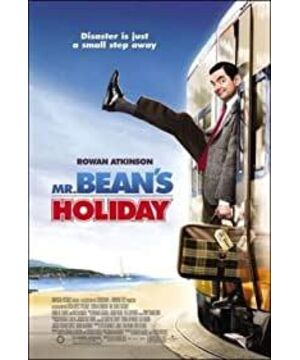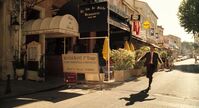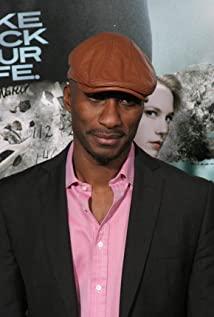Lu Xun said that comedy is to tear apart the hypocritical things in life for others to see. Plato said that being beautiful without being beautiful, being wise without being wise, and being rich without being rich are all hypocritical concepts. When these three kinds of hypocrisy are relatively weak, they are ridiculous, and when they are relatively strong, they are abhorrent. Mr. Bean is a very humorous person, and "Golden Week of Bean" is very funny. Mr. Bean is always a fool and a fool. He buys a lottery ticket and accidentally gets a chance to go on vacation to France. Mr. Bean immediately packed his bags and headed to France to realize his avant-garde movie dream! After arriving in Paris, Mr. Bean met a Cannes Film Festival judge from Russia. The whimsical Bean wanted to make an avant-garde film about himself, so he took his son, who was separated from the Russian judge, with him. The two jumped on the train and acted as a couple on the road. The father and son, but because of the language barrier, made a joke and finally got into trouble.
I think the first funny thing is that Bean decides to go to the restaurant for a meal when he thinks that the departure time is too early. After I came to the restaurant, because I couldn't understand the French menu, I listened to the waiter's advice and ordered a seafood platter. Since Bean had never eaten this kind of raw seafood, he couldn't eat it and was not used to it, but the waiter looked forward to him. In this way, Bean could only pretend that he ate it, but in fact it was all poured into his brim, and in the end he was afraid that the waiter would find out and poured it all into the bag of the lady next to him. This place embodies the "nonsense". The so-called "nonsense" means irrationality and incongruity. These irrational and incongruent objects are ridiculous in the eyes of those who make judgments according to normal laws. object. This place may not be funny if the bean eats the seafood that comes up normally or if he doesn't like it and doesn't eat it, but he not only doesn't eat it normally, but also pours the seafood into the lady's bag. Common sense, incoordination, and become the object of laughing. Schopenhauer said that anticipatory disappointment is characterized by a certain inconsistency between objective objects and concepts, and in this there is perversion. "Laughter," he said, "is always caused by the sudden realization that the object and the concept do not match. There is no other source of laughter than that. Laughter itself is the manifestation of this inconsistency." Speen Plug divides the "bad boy" into "rising bad boy" and "falling bad boy". And the bean here is the "falling pervert".
The second thing I find funny is that Bean and the little boy don't have the money to go out on the street. This place embodies the "theory of contempt" put forward by Aristotle. He believes that: "The object imitated by comedy is inferior to ourselves. But the so-called inferior does not mean all evil. Ridiculousness is only a kind of ugliness." Comedy, it is formed by our contempt for the object of weakness. In this place, Bean first stole the stereo of the disc seller, and then he would perform whatever the stereo was on. He would pretend to play the piano when the stereo was playing the piano, and he would dance there when the sound was moving. None of this attracted anyone to pitch him coins. In the end, a very sad song was played on the stereo, and he performed it with the little boy. It was roughly a sad story about the death of the little boy, and the performance was very exaggerated. In the end, it unexpectedly attracted a lot of people to put coins into them. Bean's performance here is very humorous and hilarious, which is why we laugh.
The third thing I find funny is when Bean drives a little boy and a woman at night. This place embodies Kant's "disappointment". He believes that most of the ridiculous food is a nondescript match. We expect or expect this according to the usual things, but the result is not so, or even the opposite of what is expected and expected, this time, there will be laughter. For example, if Bean drives all the way to the destination here, it is not funny, but Bean is very sleepy driving at night, almost falling asleep, and then he finds various ways to keep himself from falling asleep. Thus, laughter is an expression of expectation and disappointment. Of course, the disappointment of this expectation should not be overly severe. to induce laughter. Kant said: "There must be something absurd in all that excites and excites laughter. . Bean tried to restrain himself to sleep several times but failed several times, which reflects the "disappointment".
Laughter or comedy is not physical, nor is it immoral schadenfreude and contempt, but a smile when people look back after transcending their own limitations and shortcomings. This is the sociality of laughter. The denial of the social significance of the laugh of the laughing person to the laughing person.
View more about Mr. Bean's Holiday reviews











